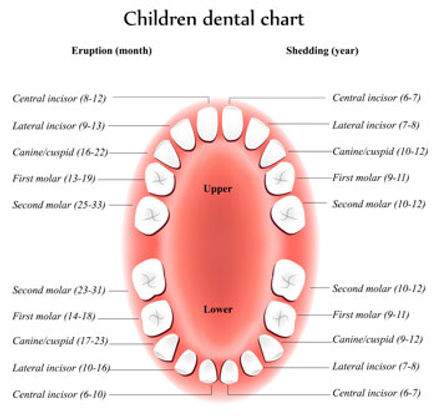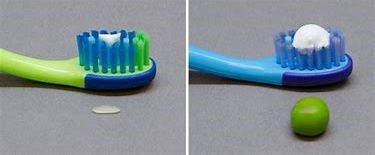top of page


General Topics
What is a Pediatric Dentist?
The pediatric dentist has an extra two to three years of specialized training after dental school, and is dedicated to the oral health of children from infancy through the teenage years. The very young, pre-teens, and teenagers all need different approaches in dealing with their behavior, guiding their dental growth and development, and helping them avoid future dental problems. The pediatric dentist is best qualified to meet these needs.
Why are the Primary Teeth so Important?
It is very important to maintain the health of the primary teeth. Neglected cavities can and frequently do lead to problems which affect developing permanent teeth. Primary teeth, or baby teeth are important for:
-
Proper chewing and eating
-
Providing space for the permanent teeth and guiding them into the correct position
-
Permitting normal development of the jaw bones and muscles.
While the front 4 teeth last until 6-7 years of age, the back teeth (cuspids and molars) aren't replaced until age 10-13. See chart on the left for a reference to the eruption of your child's teeth!
What's the Best Toothpaste for my Child?
Tooth brushing is one of the most important tasks for good oral health. Fluoride toothpaste is considered safe for children and is strongly suggested for most children, especially those prone to tooth decay. The ADA (American Dental Association) recommends that all children use a “pea size” amount of toothpaste with fluoride and to spit out the toothpaste after brushing. If the child is unable to spit use a “grain size” amount of toothpaste.



Thumb Sucking
Sucking is a natural reflex and infants and young children may use thumbs, fingers, pacifiers and other objects on which to suck. It may make them feel secure and happy, or provide a sense of security at difficult periods. Since thumb sucking is relaxing, it may induce sleep.
How long does thumb sucking usually last?
Many children stop sucking their thumbs on their own, often by age 6 or 7 months or between ages 2 and 4.
Pacifier VS Thumb Sucking
Pacifiers are no substitute for thumb sucking. They can affect the teeth essentially the same way as sucking fingers and thumbs. However, use of the pacifier can be controlled and modified more easily than the thumb or finger habit.
bottom of page
